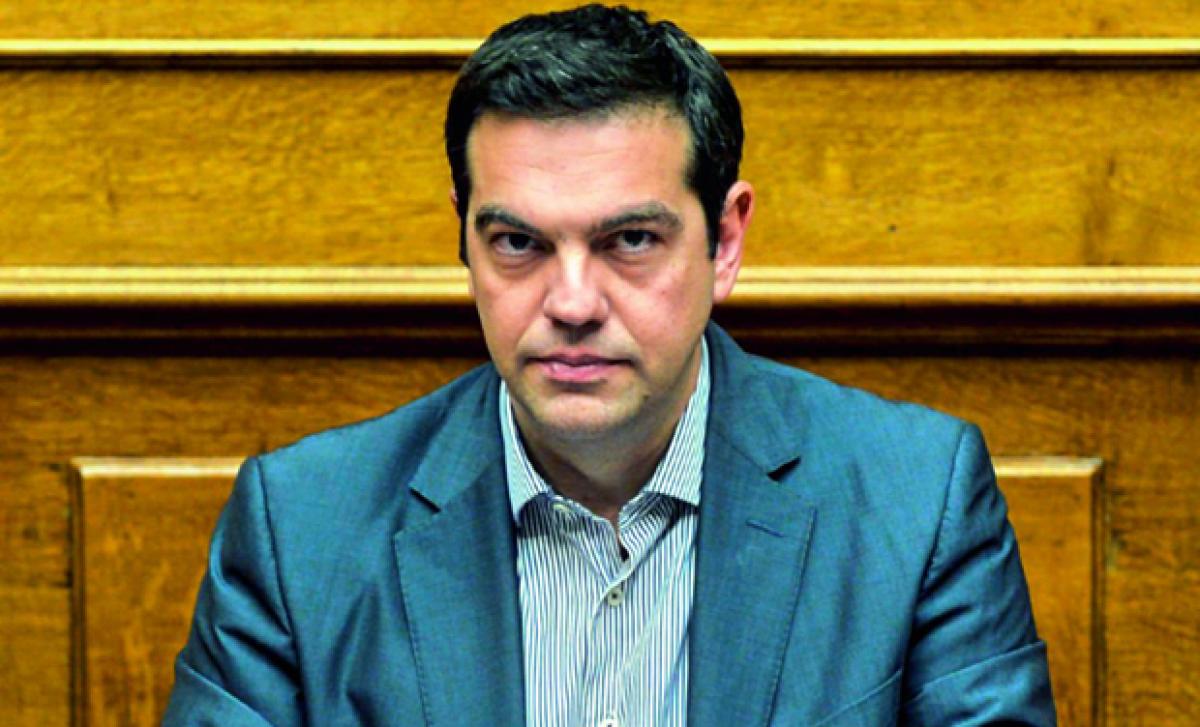Live
- PM stresses on thinking out-of-the-box in every sector
- Lokayukta cracks down, seizes illicit assets worth crores
- Farmers protest over delay in canal repair
- Amid continuing furore, five more maternal deaths occur in State
- Fostering a robust innovation
- New AP tourism policy hailed
- Village that gave land for Suvarna Vidhana Soudha, a picture of apathy
- What’s The Matter At Hand?
- Pollution levels continue to soar in Yamuna
- 540 touts held for duping passengers at IGI Airport
Just In

x
Highlights
Greek lawmakers are on Wednesday set to vote on a second batch of reforms that must pass if Athens is to receive its third huge international bailout, in a key test of Prime Minister Alexis Tsipras\' authority.
Greek lawmakers are on Wednesday set to vote on a second batch of reforms that must pass if Athens is to receive its third huge international bailout, in a key test of Prime Minister Alexis Tsipras' authority.
The embattled premier suffered a major parliamentary rebellion on the cash-for-reforms deal last week, with a fifth of the lawmakers from his radical-left Syriza party voting against sweeping changes to Greece's taxes, pensions and labour rules. He was forced to rely on the support of opposition MPs to get the law passed.
The second bill is less controversial, with MPs set to vote on measures including an EU directive that guarantees bank deposits up to 100,000 euros ($108,000), as well as civil justice reforms designed to speed up legal proceedings and reduce their costs.
The government is hoping for fewer dissidents in Wednesday's vote, but analysts say it will nonetheless prove a test of whether Tsipras can avoid a split within Syriza that could fell his fragile coalition government after just six months in power, forcing early elections.

The prime minister received a boost Tuesday when Standard & Poor's raised its credit rating on Greece by two notches to CCC+ from CCC-, still in junk territory but a step in the right direction.
S&P said that the scenario of Athens defaulting on its debts was no longer inevitable in the coming year and thus the chances of Greece having to pull out of the euro were reduced, though still "high".
Athens agreed to a package of tough economic reforms last week in exchange for a third bailout of up to 86 billion euros ($93 billion). Tsipras said he had read all the "heroic declarations" from his critics about the path he should have taken, but insisted there was "no alternative solution".
"I am aware of the responsibility I have taken in making a difficult compromise," he told colleagues at a meeting on Tuesday.
He reshuffled his cabinet just before the weekend to fill the vacancies left by the MPs who were sacked after voting against the first wave of reforms. He made nine changes overall.
Mutiny in the ranks
Vassiliki Georgiadis, a political science professor at Athens' Panteion University, said the split was between hard-left MPs "some of whom have spoken of a Greek exit from the eurozone as the only solution" and those more sympathetic to Tsipras' arguments.
She added that it would be "difficult" for the prime minister to go on if he was forced to rely on opposition MPs to get laws passed.
Government spokeswoman Olga Gerovassili said Monday that elections would not be "useful at the moment," saying the government had "no intention" of calling early polls. But while most Syriza MPs backed the government in the first vote last week, there is a swell of anger against the deal amongst the party's more radical rank-and-file members.
More than half of Syriza's central committee which represents nearly 200 party members but only a handful of MPs signed a statement last week blasting the agreement as "a coup against the Greek government, with the objective of exterminating those who imagined there could be another way out of the neoliberal model of extreme austerity".
Civil servants' union ADEDY and the communist-affiliated PAME union both plan to stage protests against the second bill outside parliament during Wednesday evening's emergency debate. Gerovassili said Tuesday that negotiations with Greece's creditors, the European Union, European Central Bank and International Monetary Fund would resume immediately after the vote.
Athens wants to see the deal hammered out by August 20, when it is due to pay 3.2 billion euros to the ECB. The government was able to pay off billions in debt to the ECB and IMF on Monday with 7.16 billion euros of emergency "bridge" funding granted by the EU.

Next Story
More Stories
ADVERTISEMENT
© 2024 Hyderabad Media House Limited/The Hans India. All rights reserved. Powered by hocalwire.com







